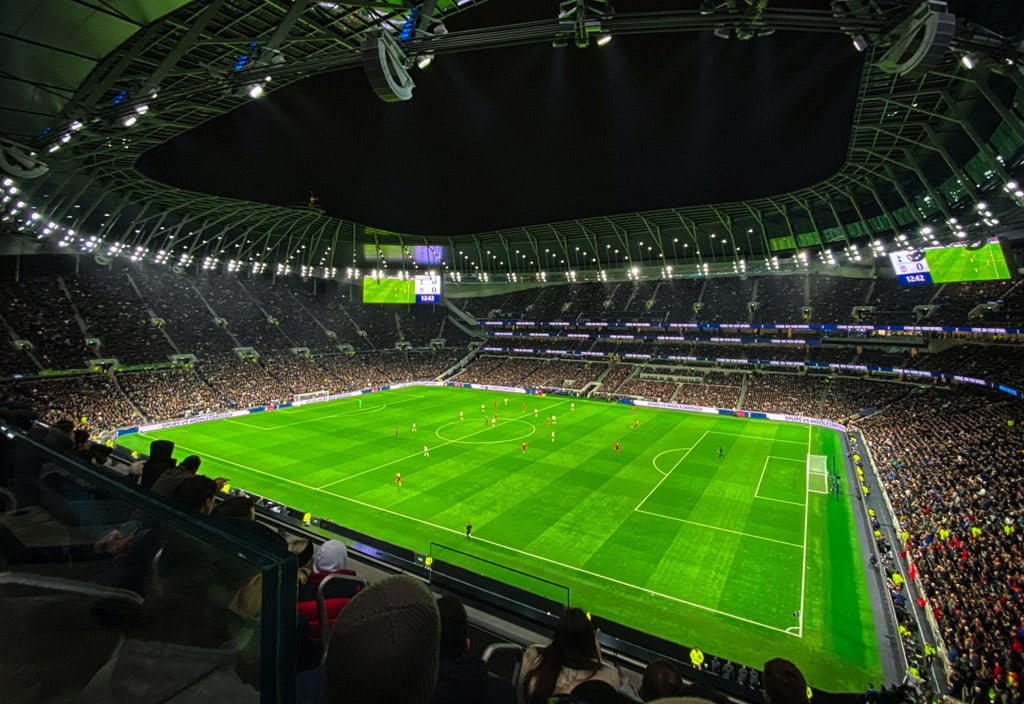This strange, unstructured season of new realities has left Spurs lacking something. Certainly not lacking in midfielders, but curiously lacking in passion.
Why is this important? Identity is something all teams need- the football version of a cause worth fighting for, or a (don’t laugh) politician’s values, driving them to change the world. The ambition to fight the good fight as well as the desire and determination required, are key components for a sporting team to have a sporting chance.
Trying to analyse what the identity of this current Spurs team is proves to be more challenging than doing the same thing for rival clubs. There is no focal point- a Mourinho or a Wenger, no ethos running through the club that says “this is our team” . You could turn off the colour and turn down the volume watching Everton, but you would still know who it was, and that this is a team playing for their fans and playing in the image of their manager. The state of flux and confusion around Tottenham seems to have been something almost visible ever since the Harry for England campaign started. For 2 years, there has been a definite sense of instability that has manifested itself in ways that leave us today uneasy about what it means for the future.
And the signs of unease are multiple. There can be little doubt that going to White Hart Lane has changed as an experience. Up to 2012, we could be proud of the noise and atmosphere generated at the club, the passion flowing from fans to players and having a material affect on results. In the 2009/10 season, we won 74% of our home matches, while 11/12 saw a 68% ratio (2010/11 did have a decline to 47%, however Champions league results had a clear affect across all fixtures in that memorable season). Compare this to 2012/13- 58%, and the current campaign where only 42% of home matches resulted in home wins. Goals scored stats are also revealing, showing a nigh-on 50% drop since 2011/12. During this time, away form surged from 37% in 2010 to 67% this year. If home form had been even stable since last season we would comfortably fill one of the Champions League places right now.
Win Ratio (%) | ||
Season | Home | Away |
2006/07 | 63% | 26% |
2007/08 | 42% | 16% |
2008/09 | 53% | 21% |
2009/10 | 74% | 37% |
2010/11 | 47% | 37% |
2011/12 | 68% | 37% |
2012/13 | 58% | 53% |
2013/14 | 42% | 67% |
There is an argument of atmosphere following performances, however for anyone going to games now there is a definite sense of eerie calm over the crowd from far too early in a match for it to be purely about what we are watching on any given game day. We can of course talk about wider issues affecting all of football- the changes in who can actually afford to go to games had had a sanitising affect across all of English football- but the changes in the club since 2012 should be considered as far more convincing reasons for a disconnect between team and supporter. A malaise seems to infect every level – Stubhub rows in Parliament make us feel like we are being viewed as no more than cash cows to be exploited, managers come and go as do players, the feeling of a high water mark in our recent history frittered away in the pursuit of vendettas (Redknapp V Levy, AVB V Adebayor, Sherwood V the English language). And above everything, the Stadium that never is – a subject that will do more than anything else in helping to define the future of Tottenham.
The Chairman is a convincing (and in many ways appropriate) place to start when looking for reasons, and for many of the problems endemic in the club clearly responsibly can be traced to Daniel Levy’s door. What Tottenham IS, post-Bale, post-Modric, needs to be articulated. The supporters are still coming, the passion still remains but the direction seems to have been lost in the wash. New managers can stamp their personalities through strength of will or character, yet the environment for this to happen needs to exist first, and at present Sherwood feels like everything else- temporary. The signings seemed like temporary adrenalin boosts, although the outgoings last summer spoke of a very definite shift in direction from a British to a Continental soul. For a club that has been a very British institution throughout its history, perhaps this as much as anything else can help to answer the riddle of a lost identity.
The only thing now is for Tottenham to know what it is as a club. Over to you, Daniel…..
Keep up to date with all the latest Tottenham news and opinion by following SpursWeb’s Facebook, Twitter and Instagram accounts.

